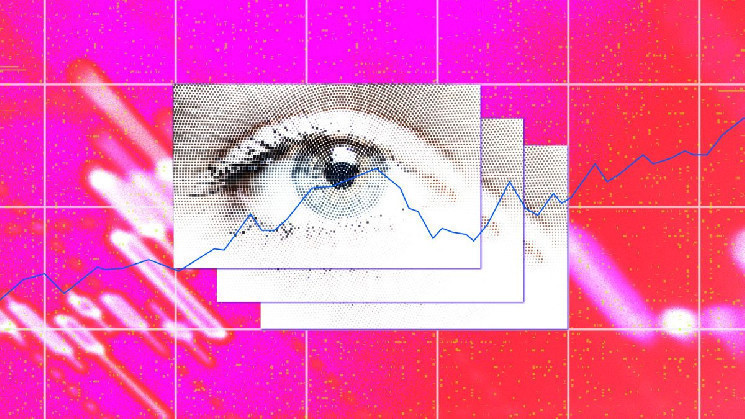Just over a year ago, ChatGPT burst onto the scene, mobilizing tech giants like Google, Microsoft and Meta at the same time, all wary of falling behind when it comes to the innovation and adoption of artificial intelligence, or AI.
With hundreds of millions of people experimenting with the power of AI chatbots every month, the role artificial intelligence plays in our daily lives, especially online, is expected to grow exponentially as more users understand the power of the technology.
In a recent conversation with investment firm FT Partners, Alex Blania, CEO and co-founder of Tools For Humanity, discussed concerns surrounding the idea that artificial intelligence could soon power the majority of online interactions. If that prediction becomes reality, it could be crucial to distinguish who is a real person and who is not on the Internet.
“There are three main areas where you can tackle the problem,” Blania said in December. “One of them is KYC (know-your-customer), so basically the government infrastructure. Secondly, you do what people call ‘web of trust’, so you know me, I know you, we assign each other a certain trust value … so we build a network of people who know each other.
“And the last one would be biometrics,” he added, as the discussion turned to discussing the concept of “proof of personhood.” Blania’s Tools for Humanity is the main developer of Worldcoin, a proof-of-personhood crypto project that uses orb devices to scan people’s irises to help them verify their identity online.
Evidence of personality
While the internet is already full of malicious actors and fake bot accounts used to both spread disinformation and mislead people, many thought leaders ultimately see the rise of artificial intelligence as an exacerbation of malicious behavior. Perhaps the only solution – something essential to Worldcoin’s mission – is authenticating people’s identities at scale.
However, an important and common problem with this approach is the fact that there are many of them people may be concerned about handing over the data needed to verify their identity, such as highly sensitive personal or biometric information. With hacks and personal data leaks becoming commonplace, how can people have the confidence to turn over the data needed to make proof of billions of people’s personalities viable?
This is where some, like Blania, say blockchain technology could play a crucial role. “The fundamental idea of crypto and blockchain is to build something that is decentralized,” Blania said during his December conversation.
At the heart of blockchain technology are digital ledgers, which serve as imperishable, distributed databases, storing information – which can be encrypted – in a decentralized manner. This means that no entity (individual, company or government) retains exclusive control over the data. Many blockchain proponents argue that a single entity is more vulnerable to attack or changing whims, while a decentralized system would be more reliable because it relies on collaboration and consensus.
Encrypted on the blockchain
In addition to storing personal data securely and encrypted on the blockchain, a decentralized system could also give people more control over their own private information, rather than having it stored by profit-driven companies like Google or Amazon.
Blockchain, it is argued, could strengthen the concept of self-sovereign identity. The theory of self-sovereign identity is that by using blockchain, individuals can exercise greater control over their personal data, so that when they choose to access online platforms, they can be more decisive about what data is accessible and how these are managed. used.
“Centralized systems like Google have complete control over your data, including how it is used and who has access to it,” Raheel Govindji, CEO and founder of ModClub, told The Block. “In decentralized systems you retain control over your own data. You can choose what you share and with whom, increasing privacy and autonomy.”
Modclub will test facial recognition with decentralized chat app OpenChat to take on the challenge of proving ‘unique humanity’.
However, Isaac Patka, co-founder of blockchain security company Shield3, warns that while decentralized systems can give people more control over their data, they are not without vulnerabilities. “A decentralized system is not necessarily more secure if it is just decentralized,” he told The Block. “But it does reduce the potential width. Without a central data repository, an attacker would have to compromise multiple systems one by one.
Preventing identity theft
Some proponents believe that blockchain’s immutability also makes it inherently more resilient to the risks of identity theft and fraud. The fact that blockchain is more difficult to tamper with could therefore ensure that recorded information is not changed or tampered with at a later date, thus limiting potentially malicious activity.
“Unlike centralized systems where access data can be more easily manipulated, blockchain ensures that all interactions are permanently recorded. This feature is especially valuable in applications such as Proof of Humanity. Changes or updates are securely recorded on the blockchain; this ensures trust without the need for repeated data exchange, improving both security and efficiency,” said Govindji.Blockchain is like giving everyone their own digital vault, in which you decide when, where and how your data is accessible.”
Worldcoin may be the most prominent project concerned with proof of personhood, but it is not the only blockchain-based project interested in facilitating the verification of unique humanity. These projects include the dcentralized chat app OpenChat and the Rarimo protocol.

